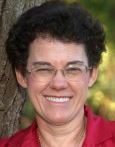Florida is reducing state-funded scholarships for private school students with disabilities if they take online courses through Florida Virtual School.
 The state Department of Education last week began notifying the 1,200 private schools accepting the McKay Scholarship that quarterly payments for students will be docked starting in February – in some cases, by as much as $800.
The state Department of Education last week began notifying the 1,200 private schools accepting the McKay Scholarship that quarterly payments for students will be docked starting in February – in some cases, by as much as $800.
Since then, some school operators, such as Donna Savary of Savary Academy in tiny Crawfordville, have pulled McKay students from the FLVS programs to avoid the unexpected costs. They also have warned parents they’ll have to pick up the tab for courses their children already completed.
“We’re not happy,’’ said Savary, whose academy has 16 students of which six receive McKay Scholarships. “The kids are not happy. The parents are really upset.’’
In a letter dated Nov. 8, the department cited the recently-amended education funding formula as cause for the reduction. DOE officials reviewed the new law that went into effect in July and determined last month that it did apply to recipients of the McKay Scholarship because the funding comes from the Florida Education Finance Program (FEFP).
School districts and Florida Virtual School also are funded by the FEFP, and have been hit with similar cuts when public school students enroll in the online provider’s program.
“If they (DOE) had told me about this in the beginning of the school year, my kids wouldn’t have been in Florida Virtual School at all,’’ said Savary, who told one of her families this week it will owe $800 in February for two courses completed since August. “This is a rural area. Parents here don’t have $800 lying around.’’
The DOE decision means parents of McKay Scholarship students are the only ones in Florida directly assessed for FLVS courses, said Robyn Rennick of The Coalition of McKay Scholarship Schools.
Of the roughly 27,000 students who receive the scholarship, about 790 are enrolled in FLVS classes with the majority taking driver’s education and health courses. Many of the schools that accept the scholarship, which ranges between $3,977 and $7,019, don’t charge any additional amount for tuition. None expected the new formula to apply to McKay scholarships.

“Some schools may be able to bite the bullet and make up the difference,’’ Rennick said. “But the bottom line is this is tuition. Somebody’s got to do it.’’
Florida Virtual School officials, who have documented an unprecedented drop in enrollment since the new formula went into effect, said they’ve heard from private school administrators that the cuts will lead to financial hardships and to students dropping FLVS classes. Spokeswoman Tania Clow called it yet another unintended consequence of the legislative change.
Legislators passed the new formula earlier this year, and it was approved by Gov. Rick Scott. The idea was to prevent the state from paying for the same students more than once when they take online courses through state-funded Florida Virtual School.
Under the old model, districts received their full per-student allocation even when that student took a course through FLVS. In addition, FLVS also received funding for the same student. Now the district and Florida Virtual split the pie, each getting a prorated amount depending on the number of FLVS courses a student takes. The more classes they take, the smaller each slice of the pie gets.
The funding change does not affect homeschoolers or private schools that accept Florida Tax Credit Scholarships. The latter program is administered by Step Up For Students, the nonprofit that co-hosts this blog.
Since the new formula went into effect, lawmakers have discussed finding ways to mitigate some of the unexpected consequences. Any changes, though, will have to come during the next legislative session. Until then, DOE officials said they must abide by the law.


